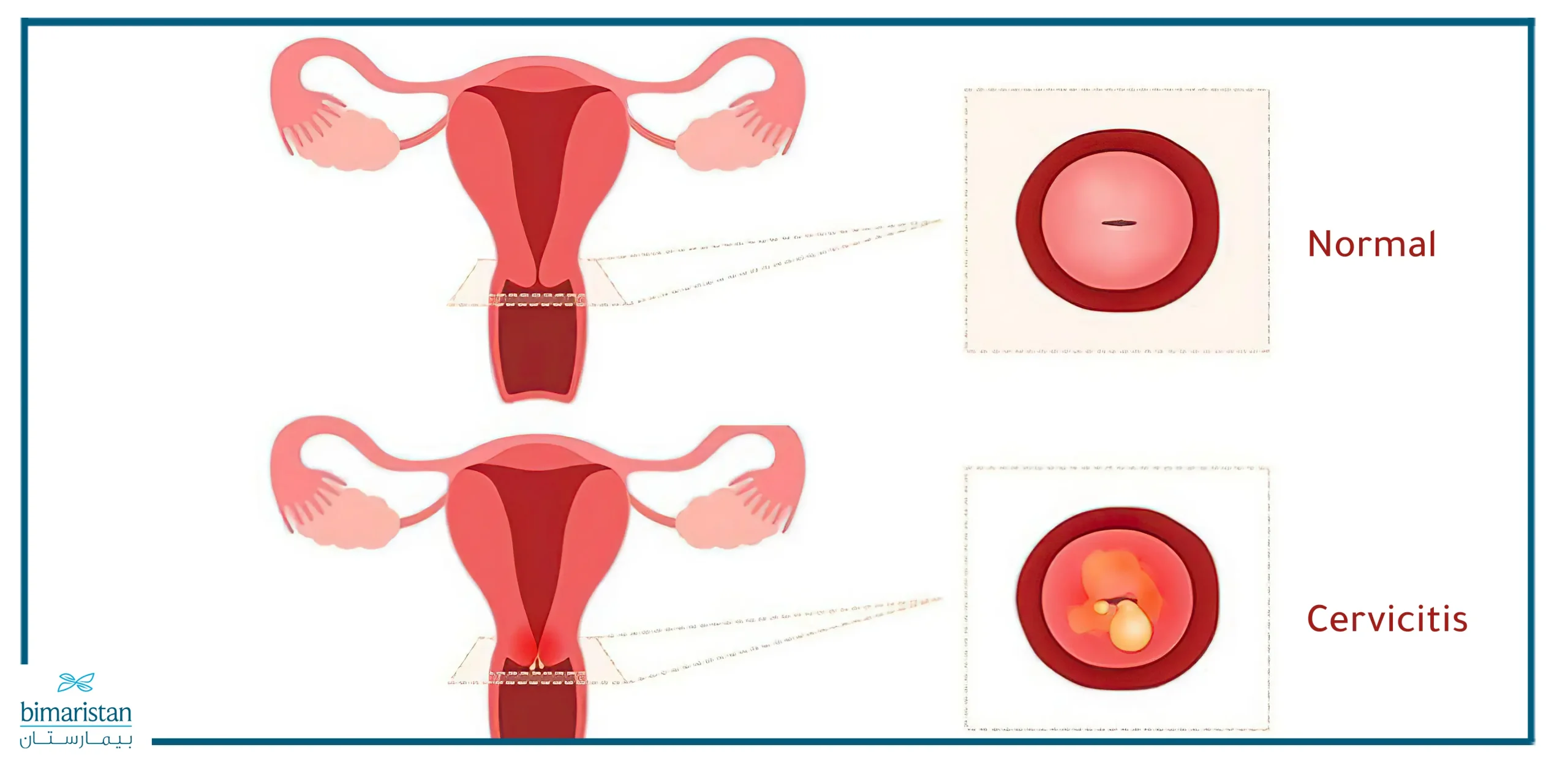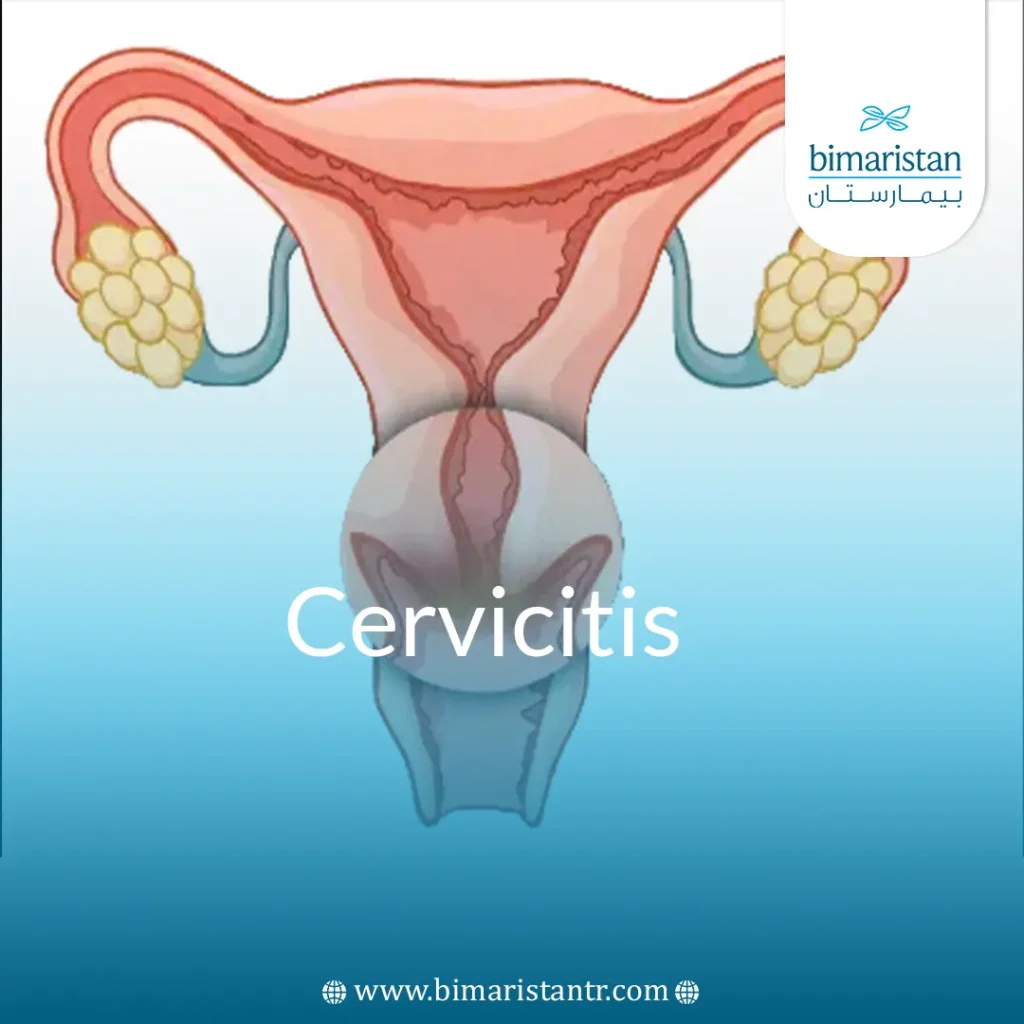Cervicitis is a common infection in women that can cause cervical cancer. Fortunately, Early detection and treatment can prevent this outcome.
Sexually transmitted pathogens primarily cause cervicitis, so it is essential to know more about its symptoms and treatment. We invite you to read this scientific article about cervicitis.
Cervicitis meaning
Cervicitis is an inflammatory condition that affects the cervix and is caused by infection with viruses or bacteria transmitted through sexual contact. The symptoms of cervical inflammation can be mild to the point where the patient may not feel any of them. Still, in some cases, inflammation can cause microscopic changes in cervical cells that may lead to cervical cancer in the future.
Inflammation affects the inner part of the cervix, including the glands and underlying cellular tissue. External inflammation of the cervix is considered an extension of vaginal infections, and this inflammation is characterized by dense infiltration of white blood cells, along with congestion of the cervix and other signs of inflammation.

Causes of Cervicitis
Some of the underlying factors that can cause cervicitis have been identified, and they are classified into viruses and bacteria as follows:
- Viral cervicitis: The human papillomavirus (HPV) is the leading cause of cervicitis. This virus is primarily transmitted through sexual contact and may cause changes in cervical cells that can lead to the development of cervical cancer.
- Bacterial cervicitis: Certain germs, such as Chlamydia and Gonorrhea, can cause inflammation in the cervix. These germs can also be transmitted through unprotected sexual intercourse.
Regardless of the causes, HPV vaccinations and regular cervical screenings are effective ways to prevent and detect inflammation of the cervix early on.
Risk Factors for Cervicitis
In some cases, the exact cause of cervicitis may be unknown, but certain factors may play a significant role in its development. Some of these factors include:
- Smoking: Smoking affects the immune system and makes the body more susceptible to infections.
- Weakened immune system: A weakened immune system makes the body less capable of fighting infections.
- Sexual history: A history of active sexual activity with multiple partners increases the risk of contracting HPV and other bacteria that can cause cervicitis. At the same time, legal marriage can protect against sexually transmitted diseases.
- Genetic factors: Some studies have shown an increased risk of cervicitis in women whose mothers or close relatives have been diagnosed with it.
- Allergies: Allergies to certain substances can lead to severe inflammation in the cervix, such as latex condoms or spermicides used for birth control. Allergies to these substances may be one of the leading causes of recurrent cervicitis.
- Intrauterine device (IUD): inflammation of the cervix can occur due to an IUD because of the inflammatory mechanism it causes in the uterus to prevent pregnancy. In some cases, this inflammation can spread to the cervix.
- Vaginitis: Inflammation in the vagina can spread to the cervix and cause symptoms of cervicitis.
Cervicitis symptoms
The symptoms of cervicitis are many and varied and differ from one patient to another, perhaps the most important of which are:
- Irregular vaginal bleeding: Bleeding is one of the most critical symptoms of cervicitis, and abnormal bleeding is abnormal bleeding that occurs outside of the menstrual cycle, perhaps after intercourse or even during intercourse (then it is called contact bleeding).
- Cervicitis discharge: These are abnormal secretions that can be seen when they emerge from the genital orifice. Cervical discharge may be mucous or purulent in consistency, dark color, and foul-smelling.
- Pain or pressure in the pelvis: occurs when inflammation spreads from the cervix to other parts of the body, such as the pelvis or lower back. The affected person may also feel pain during sex.
- Polyuria or dysuria: The patient may experience frequent and painful urination due to irritation and increased sensitivity of the tissues surrounding the bladder and adjacent to the cervix.
- Weight loss: Weight loss may occur with cervicitis for no apparent reason.
Although cervix inflammation may be frightening, it can be detected early if a woman performs gynecological examinations regularly. Therefore, women must conduct a periodic examination of the cervix according to the Ministry of Health guidelines to detect cervical infections early. And treat it immediately before it turns into cancer.
Signs of cervicitis
Many signs characterize the presence of cervicitis, but the signs seen in chronic inflammation differ from acute ones. The signs can be classified according to the following:
| Acute cervicitis | Chronic cervicitis |
| pain in cervix | Cervical enlargement |
| Cervix is red | Irregular cervical structure due to scarring |
| cervical swelling | Retention cysts (called Naboth cysts) |
| cervical irritation | |
| cervical itching | |
| cervical ulcer |
Diagnosis of cervicitis
Fortunately, with the current medical development in Turkey, it has become possible to early detect and diagnose any inflammation of the cervix by following several steps, including:
- Medical history: The doctor asks you about the symptoms you are experiencing and the period of their appearance and asks you to provide details about your health history and the history of menstrual cycles and intercourse.
- Physical examination: The doctor examines the pelvic area, uterus, and vagina using medical tools such as a gynecological mirror and a magnifying colposcopy.
- Laboratory tests: Samples are taken from the vagina or uterus to conduct several tests, such as taking a Pap smear test to detect abnormalities in the cells or a blood test to detect human papillomavirus.
- Additional tests: If tumors or abnormal changes in the uterus are suspected, additional tests may be performed, such as computed tomography (CT) or magnetic resonance imaging (MRI).

Cervicitis treatment in Turkey
Treatment of inflammation in the cervix varies significantly between patients, as treatment depends on the severity of symptoms and the cause that led to inflammation in the cervix. Treatment methods may include:
treatment at home (by medications)
In most cases, medications are prescribed for cervicitis treatment at home. Home remedies for cervicitis vary depending on the patient’s condition. Among the essential medicines for treating inflammation of the cervix, we mention the following:
- Nonsteroidal anti-inflammatory drugs (NSAIDs): These medications are used to relieve the symptoms of cervicitis, including pain and swelling.
- Topical treatment: Vaginal ointments or suppositories may be prescribed to treat cervical ulcers. These preparations contain soothing substances to relieve irritation and pain in the cervix resulting from inflammation and treat cervical congestion.
- Antibiotics: An antibiotic can be given for bacterial infection in the event of infection with chlamydia and gonorrhea.
- Antivirals: Acyclovir is mainly used if HPV causes the infection.

Acute cervicitis treatment
In many cases, we can resort to surgical procedures or other local procedures to treat severe cervical infections. Among the most important of these methods are the following:
- Cervical resection: In the event of severe cervical changes in pathological cells or tumors on microscopic examination. Surgery may be required to remove damaged tissue or a tumor to get rid of cervical infections.
- Other procedures: Several non-surgical techniques may be used in the event of minor pathological changes in the cervix cells that do not reach the level of cancer. Among these techniques, we mention:
- Cryosurgery to freeze affected tissue.
- Electrocoagulation to get rid of damaged tissue.
In general, the appropriate treatment plan is determined based on the diagnosis results and the patient’s condition, and the woman is directed to a specialized medical consultation with a gynecologist to obtain an accurate diagnosis and treatment.
Bimaristan Medical Center remains your first destination for treatment in Turkey due to the availability of advanced medical equipment in addition to dealing with highly experienced doctors in all specialties. Do not hesitate to contact us to guide you to the treatment plan that suits your health condition.
Risks of cervicitis
Although early diagnosis and successful treatment of cervical inflammation are possible, if neglected and not treated promptly, many health problems will result. The most important complications of cervicitis include:
- Recurrent bladder infections: Inflammation in the cervix may irritate the tissues surrounding the bladder and increase the risk of recurrent bladder infections.
- Pain and swelling: Inflammation of the cervix may result in pain and congestion in the area surrounding the neck. This affects the patient’s comfort and causes tension and discomfort.
- Impact on sexual life: Severe cervicitis may affect the patient’s sexual life, cause pain during intercourse, and may affect her ability to enjoy sexual desire.
- Urinary problems: Cervical infections may increase bladder sensitivity and irritation, causing frequent urination urges and pain during urination.
- Failure to get pregnant: In some cases, inflammation of the cervix may affect a woman’s fertility and her ability to become pregnant, and it may affect the movement of sperm and their ability to reach the egg cell.
- Endometriosis: Inflammation may spread from the cervix to the uterus, causing an inflammatory condition in the lining, and if the woman is pregnant, the fetus may be miscarried.
- Cervical cancer: Failure to treat inflammation in the cervix may increase the risk of cervical cancer, which is a significant cause of death among women in some countries, especially developing ones. It should be noted that in some cases, this cancer may also spread from the cervix to the lining of the uterus. To cause Uterine cancer.
Prevention of cervicitis
Vaccines or vaccines against the human papillomavirus are an effective way to prevent cervical infections. These vaccinations are recommended for individuals who have suspected illegal sexual relations for fear of contracting the disease from one of the sexual partners. There is no need for the vaccine for those who have sex after legal marriage only because of the examinations before marriage, which include screening for this virus.
In conclusion, it is necessary to be aware of the necessity of staying away from promiscuous sexual relations and performing frequent gynecological examinations. You must also consult a doctor directly if you feel any of the symptoms of cervicitis due to its seriousness and the possibility of it turning into cervical cancer and the resulting damage that may threaten your life.
Sources:
- Johns Hopkins Medicine
- WebMD
- Healthline
